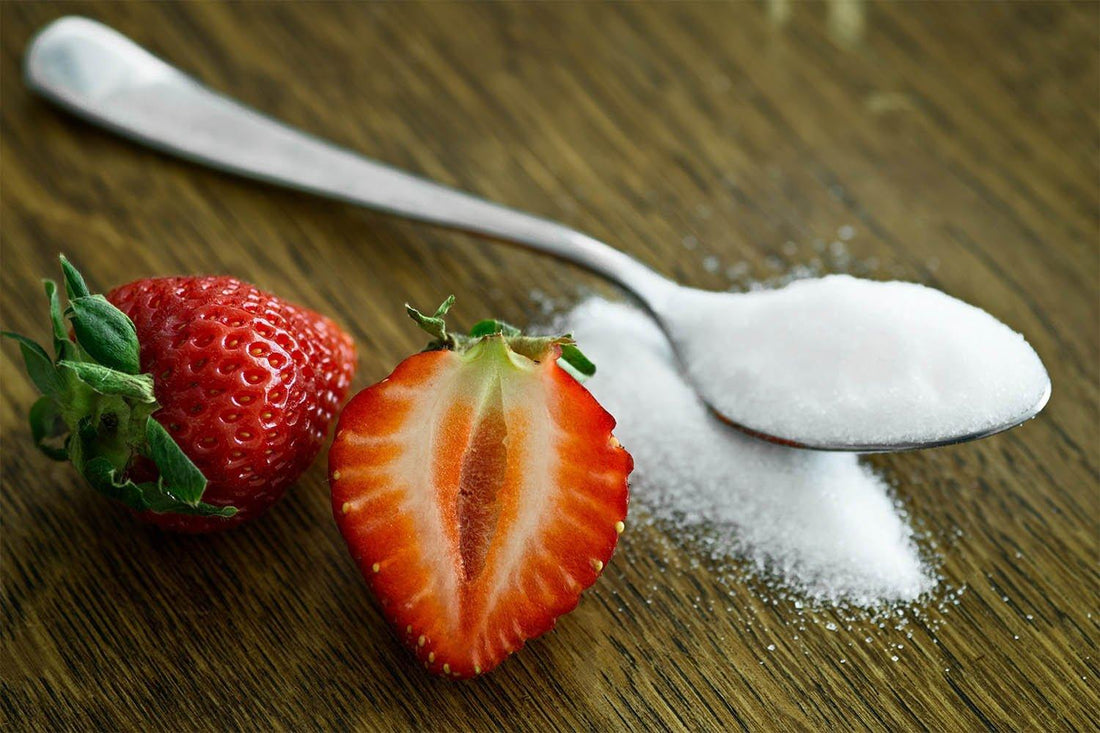
Sugar - the white assassin
Share
We know that it causes tooth decay, heightens our risk of developing Type 2 diabetes and makes us gain weight - but did you also know that sugar:
- plays a role in the acidification of our bodies
- intensifies inflammation - sugar can cause chronic low level inflammation which in turn is linked to diseases such as heart disease and cancer.
- slows down our digestion - can cause abdominal cramps and bloating.
- can lead to hormonal imbalance - sugar can also interfere with insulin production, which is linked to oestrogen and testosterone levels.
- speeds up the ageing process - as the collagen and elastin in our skin are damaged by a process known as cross-linking, elasticity is damaged. Skin sags and loses its tone.
- is involved in acne development - as sugar causes a rapid spike blood sugar and insulin levels, oil production, androgen (a hormone) secretion and inflammation are increased which in turn can exacerbate acne. If you have a spot-prone teenage son or daughter getting them to radically reduce their sugar intake should see a marked improvement.
- can increase the risk of developing gout - sugar raises uric acid levels in the blood, increasing the risk of developing or worsening gout, a really painful inflammatory joint condition.
But I don’t add sugar to my food…
For many of us, it’s actually the hidden sugar in processed foods that is the silent problem. You may not be adding sugar to hot drinks, don’t consider yourself to have a sweet tooth - and certainly don’t eat sweets regularly - and shun fizzy drinks. But it’s the sugar that’s added by the time a product reaches your lips that means we can unwittingly consume far more than we realise.
Picture this: One morning at breakfast you have some peanut butter on delicious wholegrain toast. Great - except peanut butter can contain more sugar than it does fibre. So you swap to a known-brand granola - but this contains up to 13g of sugar in your 45g serving. It’s OK - you have a fibre-rich wholegrain cereal with added fruit in the cupboard…but even that contains 9g of added sugar per 45g.
Instead: try unsweetened porridge, eggs and a vegetable-based superjuice. You might also like read our recent blog on why breakfast is the most important meal of the day.
Sugar substitutes
To sweeten food without going back to refined sugar, try Xylitol or stevia available at most health food shops. As you start to consume less sugar you’ll find your taste buds adapt and you crave less.
